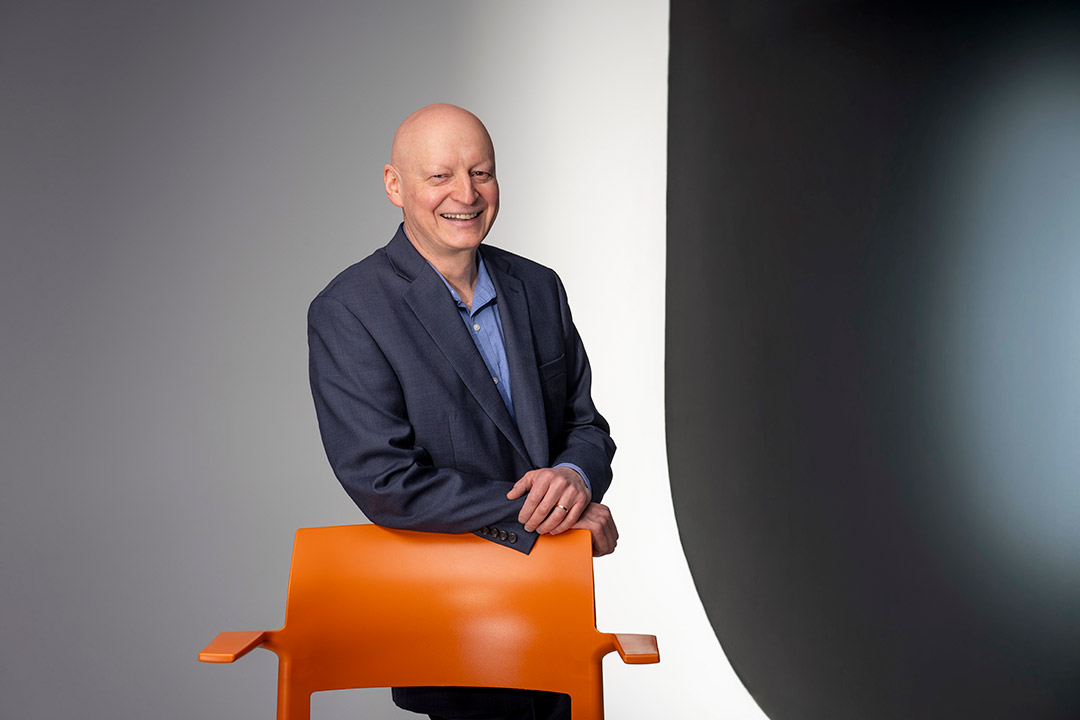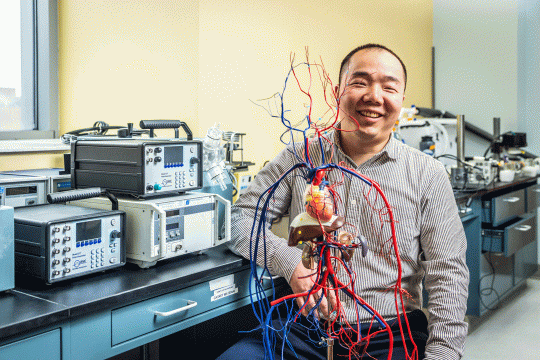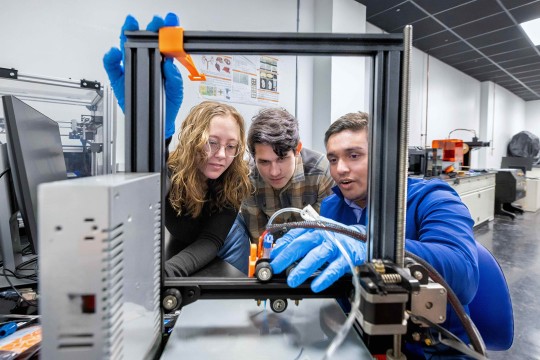Electrical engineering professor connects history with the future for today’s students
Dorin Patru honored with Eisenhart Award for Outstanding Teaching
Carlos Ortiz/RIT
Dorin Patru, associate professor of electrical engineering, is a 2024 recipient of the Eisenhart Award for Outstanding Teaching.
Dorin Patru had prepared some talking points on his computer for his interview about becoming a 2024 Eisenhart awardee. When asked about how students have changed (or not) over the years, he started to laugh.
Meet the other Eisenhart winners
“My screen just went blank; it wants me to be authentic,” he joked.
Patru’s authenticity and humor are as much a part of his classes as the informal conversations he has with students about mutual interests in space, music, art, and history. His classes in digital systems are information-rich discussions. Students learn he is serious about the subject matter, but they also see a faculty member who values building personal connections.
These qualities are only a few of the reasons he’s being honored with the Eisenhart Award for Outstanding Teaching.
“Every generation is marked by the environment in which they grew up and those change all the time,” said Patru, an associate professor of electrical engineering in RIT’s Kate Gleason College of Engineering. “These events leave a mark on the way students learn, the way they act and react. I can’t say there is a need for a remarkable change in the teaching approach from one generation to the other but there is certainly a need for very fine adjustments.”
Some adjustments made in his classes occurred because of technology changes and industry demands. Opening his lectures on integrated circuits and lithography—exposing computer chips to photosensitive materials—he explains photography and film development to a generation of students who’ve only used digital cameras. History becomes a way to show students where they are in the scheme of technological history and the role they can play in its future.
“Today I am teaching complexities at the undergraduate level that 20 years ago were only mentioned at the graduate level,” he said. “Technology is making that possible, and that is expected by industry from these students today.”
Patru was born and raised in Romania to a family of educators and engineers. His mother taught high school; his father was a mechanical engineer. He has taken a similar path blending teaching, engineering, and family. His daughter was born the day before he began teaching his first class as an instructor in the U.S.
With extensive experience in industry and academia, Patru, who came to RIT in 2002, is an expert in digital computer circuits and systems.
“We think we are the fastest-paced generation of mankind. However, in relative terms, throughout history things changed as fast for other generations. I don’t feel overwhelmed by continuous change,” he said. “Maybe I have an advantage because I am in one of the majors that enables the progress of mankind. And that is very exciting.”
That excitement translates into the classroom, laboratory, and numerous collaborative projects with colleagues from RIT and other universities. Whether developing advanced cache memories for computer systems, advancing how biomedical researchers probe spectral signatures, or simply improving sound systems for a guitar—an instrument he plays for his own enjoyment— Patru considers himself a lifelong learner.
“I must give the biggest thanks to the students I have had, which in turn have taught me. I would be misleading in saying that 22 years ago I was teaching as well as I do now,” he said. “The famous physicist Richard Feynman confessed to friends that in his first two years as an assistant professor, he learned how to teach. So, my corollary? After 22 years I am still learning.”





